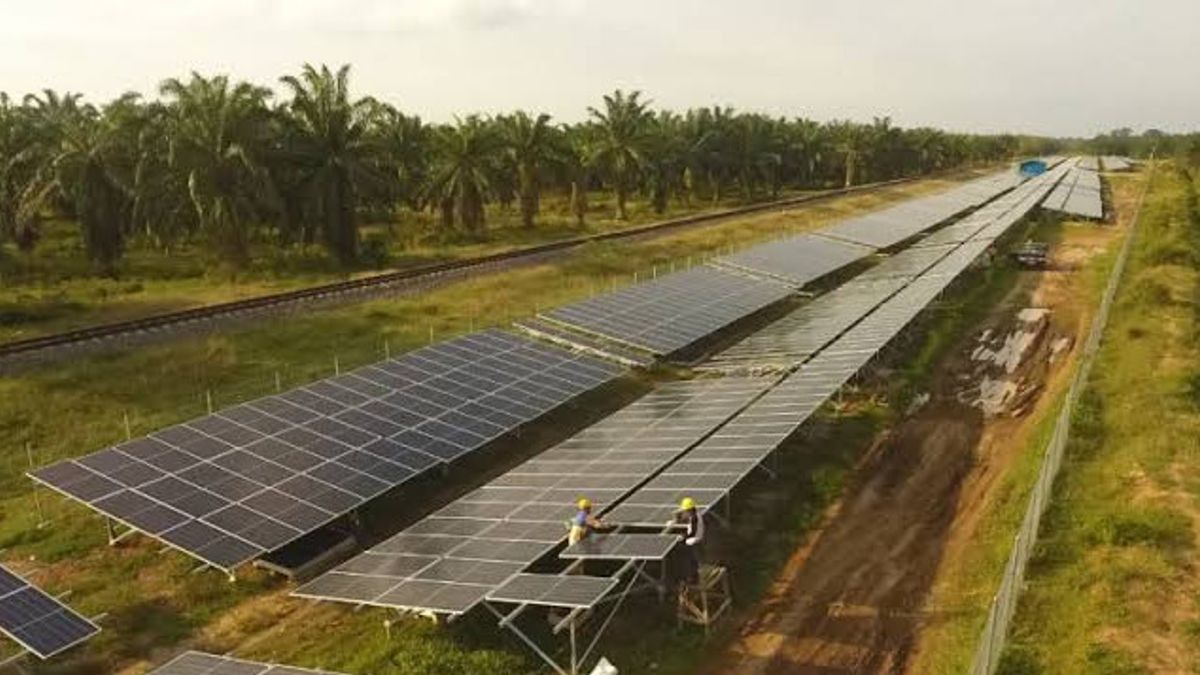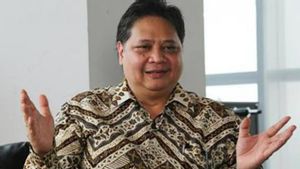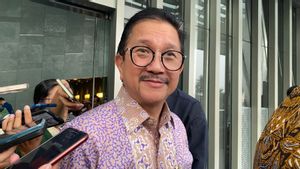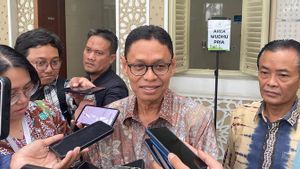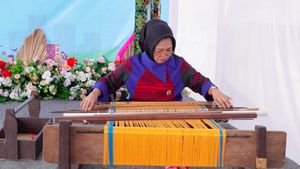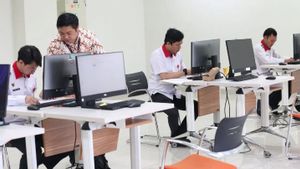JAKARTA - The Indonesian Chamber of Commerce and Industry (Kadin) continues to encourage the energy transition by reducing emissions in all sectors and segments of society as well as creating innovations and methods to improve social equality, especially in the context of energy equity.
Chairman of the Standing Committee on New and Renewable Energy of Kadin Muhammad Yusrizki in a statement in Jakarta, Friday, June 24, stated that the Equitable Energy Transition is the spirit built by Kadin in the context of Indonesia's energy transition, considering that there are still many regions that do not receive equitable electricity.
"Many segments of the community, especially in the 3T area in Indonesia, are experiencing electricity poverty. PLN as an extension of the state is already present in many 3T areas, but the electricity supply in these areas is uneven, as a result, communities in 3T areas can only get a certain amount of electricity. hours a day, not yet 24 hours," said the Chairman of the Kadin Net Zero Hub, quoted by Antara.
According to Yusrizki, when speaking at the Global Conference 2022 Asia Venture Philanthropy Network (AVPN), the uneven supply of electricity in various regions is an obstacle to the potential for regional growth.
"Limited electricity supply also ultimately hampers the economic cycle of the community where to get added value they need basic infrastructure, one of which is electricity," he said.
Yusrizky also emphasized the importance of the participation of all stakeholders in building a just energy transition, especially with the limitations of PLN as the government's representative in supplying electrical energy.
"In terms of improving electricity supply for the 3T area, we have to admit that PLN has limitations in one way or another. It can be said that the oversupply condition in Java and Bali is a big issue for PLN which makes utility-scale EBT not yet a priority for PLN. people at 3T seem to have been neglected in the midst of oversupply conditions in Java and Bali," he said.
Although still facing a number of obstacles in Indonesia's electricity system, he continued, Kadin is currently designing a series of collaborations with groups and communities that pay attention to the needs of the 3T community, especially communities that can have a positive and immediate impact.
According to him, Kadin has met and collaborated with youth communities to design innovative business models in which the provision of renewable energy electricity is combined with infrastructure services that are really needed by the region.
"For example, irrigation. In addition to providing electricity from renewable energy, we must also design sustainable technology and business models that can answer the need for irrigation in the agriculture and plantation sub-sectors in the 3T community," he said.
Continuing the example of irrigation, according to him, innovation in the business model means combining the provision of renewable energy with the use of appropriate irrigation technology, which is designed to take advantage of the advantages of renewable energy.
Thus, the result that appears commercially is that the community no longer pays for electricity per kilowatt-hour, but pays for irrigation services, for example in units per liter per day.
"With business model innovations such as irrigation, the benefits of renewable energy have visible, tangible benefits, and the positive impact can be directly felt by the community," said Yusrizki.
In the 2022 Global Conference series, Yusrizki invites every AVPN member and international parties who want to advance a fair energy transition agenda to look at communities that are directly involved in the 3T community.
"There are so many young people who have the spirit of microeconomic development complete with an understanding of technology. If Kadin and AVPN are able to form a supporting ecosystem that surrounds them, then the impact of a just energy transition can be much more significant when compared to us trying to improve the energy mix from NRE on the national grid. In the end, people in 3T areas cannot wait for grid availability, they need solutions that can help them increase the added value of the economy," he said.
The English, Chinese, Japanese, Arabic, and French versions are automatically generated by the AI. So there may still be inaccuracies in translating, please always see Indonesian as our main language. (system supported by DigitalSiber.id)
